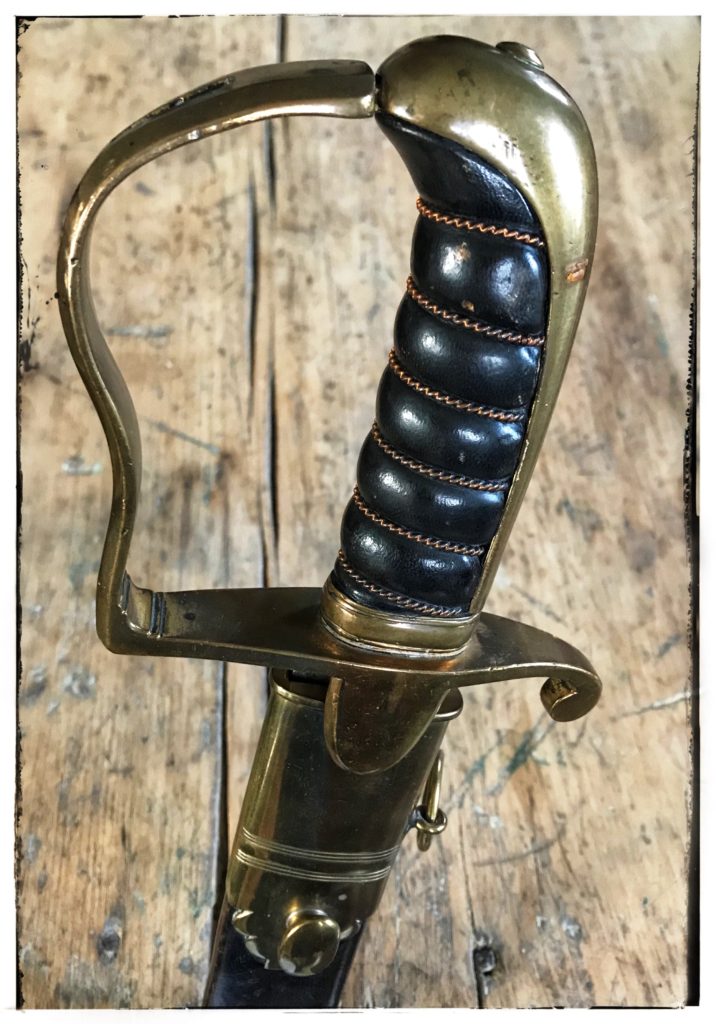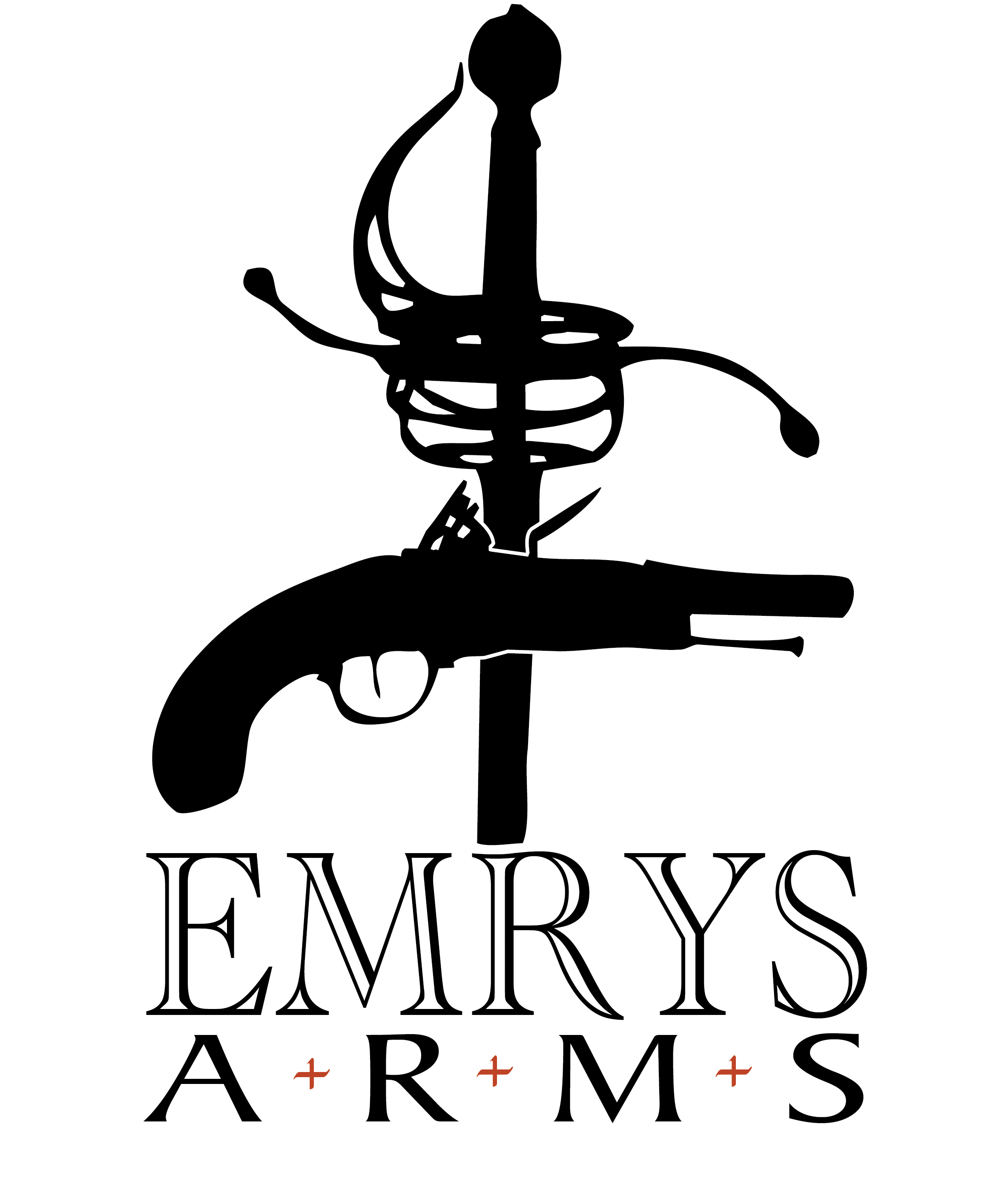| Collection #: | 2020.005 |
|---|---|
| Type: | Infantry Flank Officer |
| Nationality: | British |
| Pattern: | c.1800 |
| Date: | c.1800 |
| Hilt: | Brass |
| Blade Length: | 73.5cm (28 7/8") |
| Blade Width: | 3.4cm (1 3/8") |
| Overall Length: | 86.2cm (34") |
| Maker: | Blade is highly polished with only spotty engraving remaining |

A British flank officers sword in pristine condition. When I first acquired this at auction in St. John, New Brunswick, I was tempted to think I had purchased a reproduction, however there are some key indicators to suggest otherwise. For starters, the leather scabbard has shrunk from age. You will see in one of the photos below how the sword no longer fits all the way into the leather scabbard. Secondly, when you look closer at the ‘mirror shine’ blade (again, pictures below), you will see traces of engraving in the blade. This is what happens when someone over zealously polishes a blade. It is possible that the leather grip was redone.
An interesting piece of information on this particular sword, according to a description Brian Robson wrote in his book Swords of the British Army, is that it may have belonged to the 60th Rifle Battalion. That prestige may have made this sword worth refurbishing by its previous owner. While it is possible that it has a different history, Robson’s description is as follows – see what you think.
“…In 1800 an Experimental Corps of Riflemen, composed of detachments from other infantry regiments, was raised by Colonel Coote Manningham. It became in due course the Rifle Brigade. From the start, the officers of these regiments carried curved light infantry type sabres. The rifle battalions of the 60th initially carried a sabre with a gilt-brass stirrup hilt, in a black leather scabbard with gilt mounts.”
– Brian Robson, Swords of the British Army – The Regulation Patterns 1788 – 1914, pages 153 & 156.
We use cookies to improve your experience on our site. By using our site, you consent to cookies. Enjoy the cookies...they're delicious...
Websites store cookies to enhance functionality and personalise your experience. You can manage your preferences, but blocking some cookies may impact site performance and services.
Essential cookies enable basic functions and are necessary for the proper function of the website.
Statistics cookies collect information anonymously. This information helps us understand how visitors use our website.
Google Analytics is a powerful tool that tracks and analyzes website traffic for informed marketing decisions.
Service URL: policies.google.com (opens in a new window)

